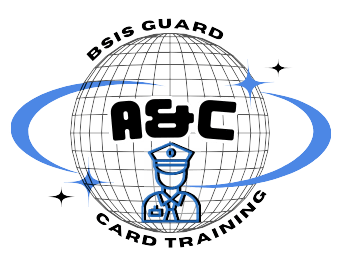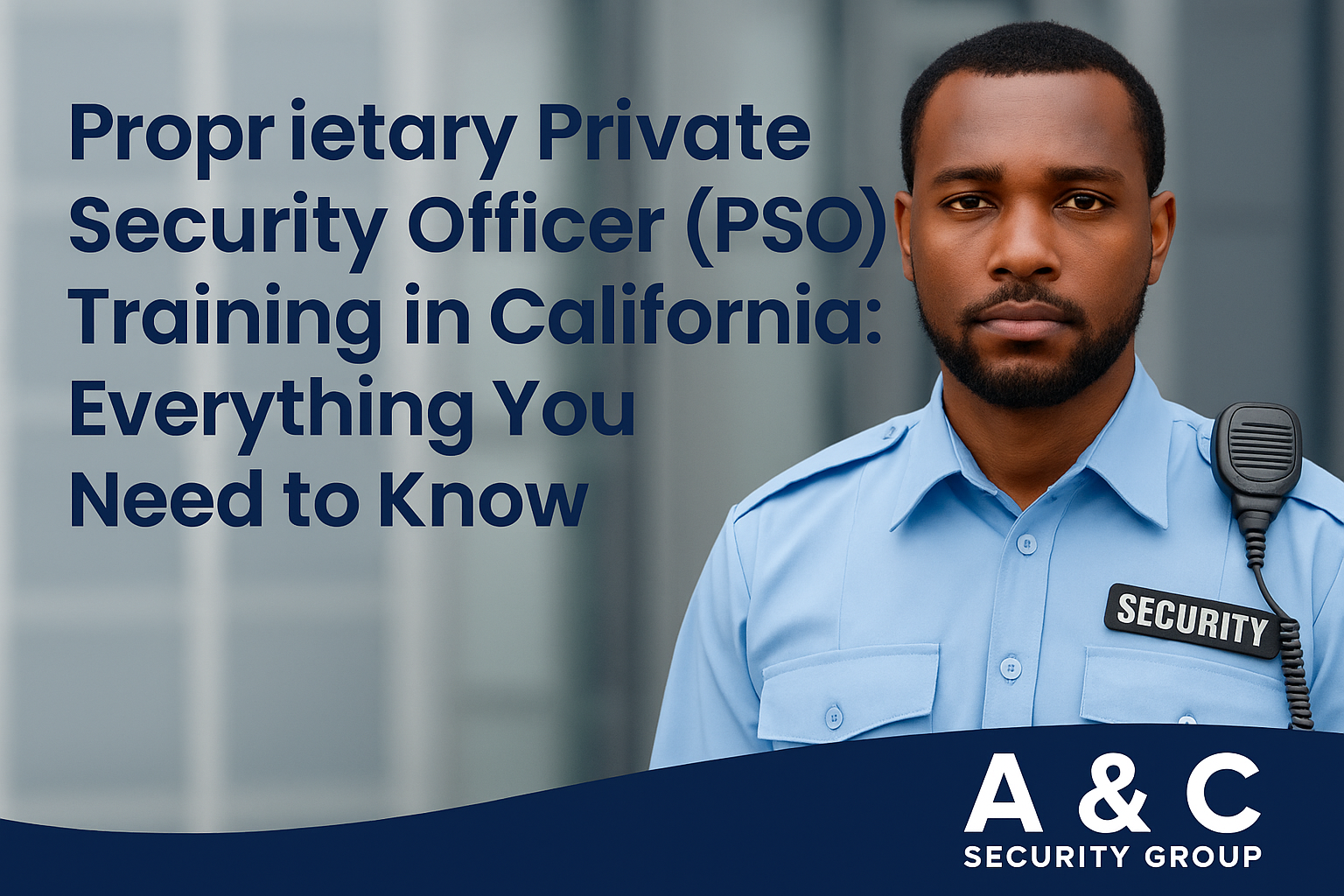What Is a Proprietary Private Security Officer (PSO)?
In California, a Proprietary Private Security Officer (PSO) is a security professional hired directly by a business to protect its property, employees, or customers. Unlike contract security guards who work for a licensed security company, PSOs work in-house and provide security only for the business that employs them.
Common examples of PSO positions include:
- Store security at retail businesses
- Hotel security officers
- In-house building security for office complexes
- Security staff at entertainment venues
PSO Training Requirements
To become a PSO in California, you must complete training that complies with the Bureau of Security and Investigative Services (BSIS). The requirements are designed to ensure PSOs understand their role, responsibilities, and limits of authority.
Basic Eligibility
- Must be at least 18 years old
- Must have no felony convictions
- Must complete a criminal background check through Live Scan
Training Topics Covered
The 16-hour PSO training program (minimum) includes instruction in:
- Powers to Arrest – legal limitations and procedures
- Observation & Documentation – how to write accurate incident reports
- Communication Skills – interacting with the public and de-escalating conflict
- Emergency Procedures – what to do in fires, medical emergencies, or natural disasters
- Liability & Ethics – understanding professional standards and avoiding misconduct
Registration With BSIS
Once training is completed, you must apply for registration through BSIS. This includes:
- Submitting the PSO registration application
- Providing proof of training completion
- Passing the DOJ/FBI criminal background check
- Receiving your PSO registration card
Difference Between a PSO and a Security Guard
While both protect people and property, there are key differences:
- PSO: Works directly for one business, cannot carry a firearm, and usually has a narrower scope of duties.
- Licensed Security Guard: Can work for a licensed security company, may qualify for additional permits (like firearms or baton), and can be assigned to multiple client sites.
Why PSO Training Matters
Even though PSOs don’t carry firearms, their role is crucial. Proper training ensures they:
- Know how to handle emergencies safely
- Can prevent theft, vandalism, and workplace violence
- Protect both employees and customers with professionalism
- Reduce liability for the business they represent
Getting Started
If you’re ready to start a career in security but don’t want to go through a full guard card program, becoming a Proprietary Private Security Officer may be the right path. It’s a quick entry into the field and provides valuable on-the-job experience.
👉 Interested in training? Contact A & C Security Group today to learn more about our BSIS-approved programs.

